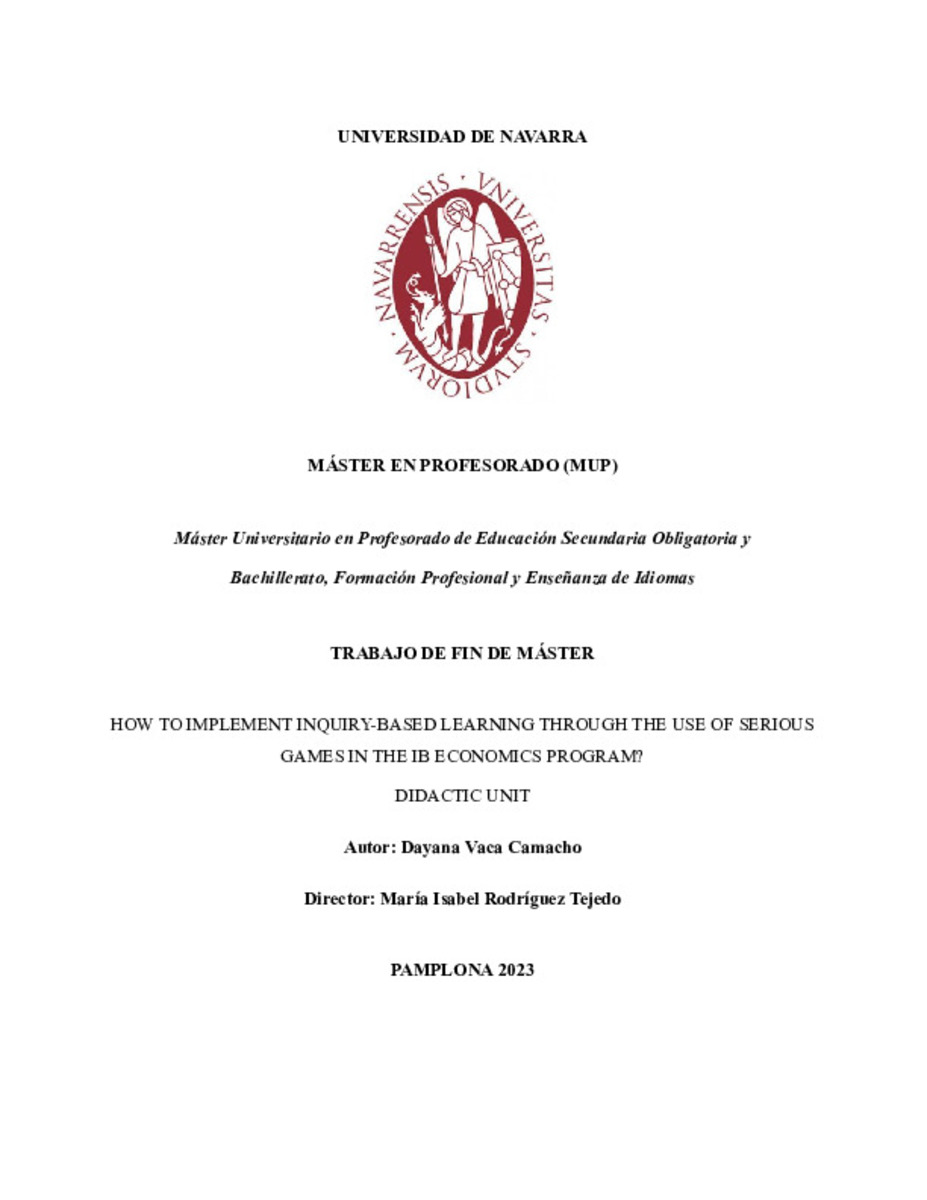How to implement inquiry-based learning through the use of serious games in the IB economics program?
Keywords:
IB teaching
International Baccalaureate
Inquiry-based learning
Experiential Learning
Game-based learning
Circular Economy
Education for Sustainable Education
Sustainability
ecoCEO game
Enseñanza IB
Aprendizaje basado en la indagación
Aprendizaje basado en la experiencia
Aprendizaje basado en juegos
Economía Circular
Educación para la sustentabilidad
Sustentabilidad
Juego ecoCEO
Statistics and impact
0 citas en

0 citas en

Items in Dadun are protected by copyright, with all rights reserved, unless otherwise indicated.







